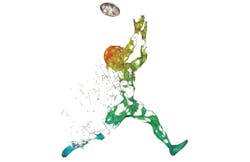As I write this, we are approaching Super Bowl Sunday. Of course, by the time you read this, the contest will already be decided. Will it be the Rams, the underdog story beating the legacy team with many, many Super Bowl wins already? Or will it be the Patriots yet again taking the title?
While I don’t know the outcome just yet, one thing I know for sure: the best coaches rely on making their weaker players adapt to the stronger ones and not the other way around. I first read about adaptation from Edwin Friedman in his book, Failure of Nerve. Edwin was among the most influential therapists of our generation. Now his books are routinely used in universities across the country as standard texts to prepare the next generation of therapists. But Friedman liked to cut across the grain. Not because he was a contrarian by nature; it was his broad experience as a practitioner and his deep research as a scholar that revealed to him how most people in his profession got it wrong. He saw that many were first captivated—but then held captive—by the concept of empathy. And he started to emphasize a less popular concept called adaptation.
It goes without saying that empathy is an important concept. Empathy is often the key to most healthy relationships, whether at home or at work. But it does have a shadow side when taken too far. This is especially true when we are trying to develop people.
In short, if we treat people—whether they be our kids or our coworkers—as weak, they may start to believe they are weak. And soon they will act accordingly. But, if our desire is to develop people, help them learn and perform better, then we need to treat them as capable. We hold them to a high standard and coach them to achieve greater things. We help them adapt to the talent around them and the higher expectations we set as leaders.
In Friedman’s book, he uses the example of a football coach who was frustrated with complaining teammates. But instead of coddling them, this was his philosophy: “When I coach, if the receivers complain that the quarterback throws the ball too hard, I don’t go to the quarterback and tell him to let up. I tell him to throw it as hard as he can, and then I tell the receivers they better hang on to his passes if they want to hang on to the team.
“If those who cover punts complain that the punter kicks it too far, I don’t go to the punter and tell him not to kick it so far. I tell the punter to kick it as far as he can, and I’ll try to find players that can get down the field and cover his kicks.
“And if blockers say they are having trouble keeping up with a running back because he is too fast or too slippery, I don’t get on the running back and tell him to go slower; I tell him to do his thing as best he is able, and I get on the blockers to keep up with his agility.”
What does this look like?
Recently, at one of our shops, we had a technician that started to come in later and later. We had an agreement with him that, due to a family commitment, he could come in later than our other technicians. Our shop is flat rate so it wasn’t like he was hurting us directly by coming in later, as long as his work gets done. But, over time, what we noticed is that he would come in later and later and then he would leave earlier and earlier. And if there wasn’t work put right in front of him once he was caught up, he would bounce out rather than check with a manager to see if any new work had come in or if there was one coming back to him from paint soon.
Simultaneously to this, I have been pushing this manager to get more hours weekly out of his team. I also said that if the current team isn’t able to step up on the hours, I would have to hire another technician. The manager went to work. He set up a lunch meeting with this tech and laid out the new goal I had given him and explained clearly how many hours we needed him to turn and how him coming in late was not only hurting his earning potential, it was also keeping the shop from hitting the larger goals we had set. And if we don’t hit those hours, the shop can’t afford new equipment and all the extras that comes with being a profitable shop, like lunches, bonuses, more time off when needed. Over lunch, he secured from this tech a fresh commitment to come in on time, stay later or work weekends once in a while to offset coming in later and checking with a manager before just bouncing.
In short, he threw the ball harder and expected his receiver to step up. And he did. The tech committed to the new standard. There is total clarity on what stepping up means.
We all want our team members to succeed and do well. We want them to grow and become the best they can be. We want them to perform well at our shops and, in turn, be able to provide for their families and reach goals they have set for themselves. And throwing the ball harder—holding them to a higher standard than they are currently comfortable with—may just be the key to unlock that next chapter of their growth and development.





